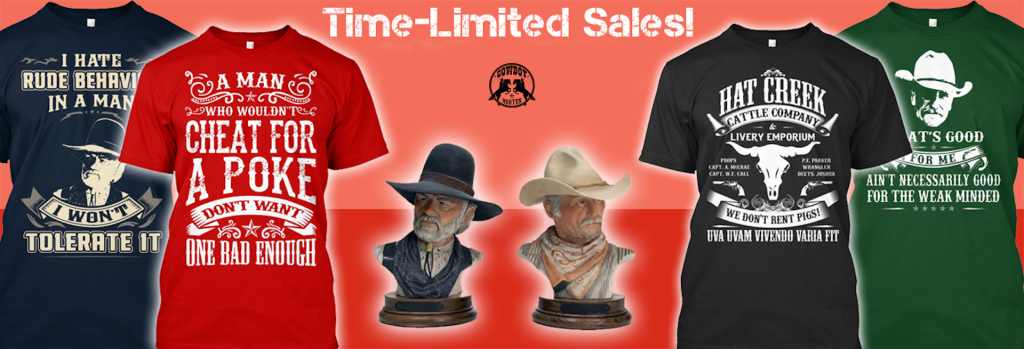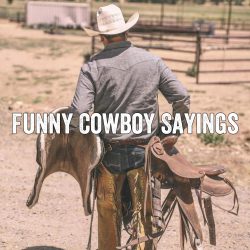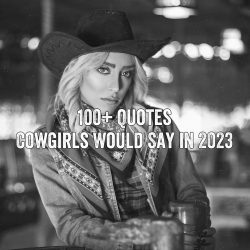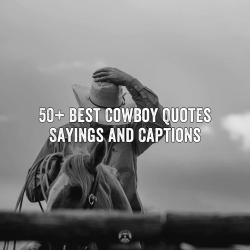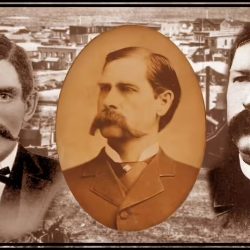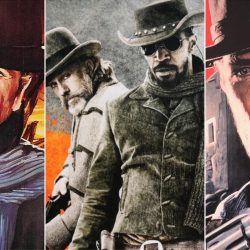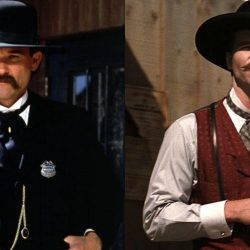While at a friend’s house this past weekend, the famous Disney and Pixar movie Toy Story was playing in the background; effectively keeping the children entertained as we chatted and enjoyed our adult libations. After the film finished and the children were sent off to bed, we heard one tell the other “make sure to always check your boots for snakes.” Although this might not make much sense to everyone, I immediately knew what he was referring to. The catchphrase “there’s a snake in my boot!” is frequently used throughout the movie by the main protagonist, Sheriff Woody.
This got me to thinking about cowboy expressions and commonly used wild west slang words used now and during the old frontier heyday. If you’re anything like me, you’ve probably wondered about the definition or gotten confused by certain cowboy phrases while you were watching an old western, reading a history book, or listening to a classic country song. That said, cowboy expressions can be incredibly hard to understand if you haven’t been taught; it has a long and rich history that takes root from old mining camps, the battlegrounds of the Civil War, and from the cowboys who still live and work the land to this day. Also known as buckaroos, cowpunchers, horse wranglers, and cowhands, the cowboy name is inspired by the old term “cowpoke”. Today, cowboys are a symbolic icon of the American West culture that can trace its history back more than two centuries.
If you’d like to learn about both old and new commonly used cowboy expressions and what they mean — keep reading!
Top 100 Cowboy Expressions and Wild West Slang Phrases
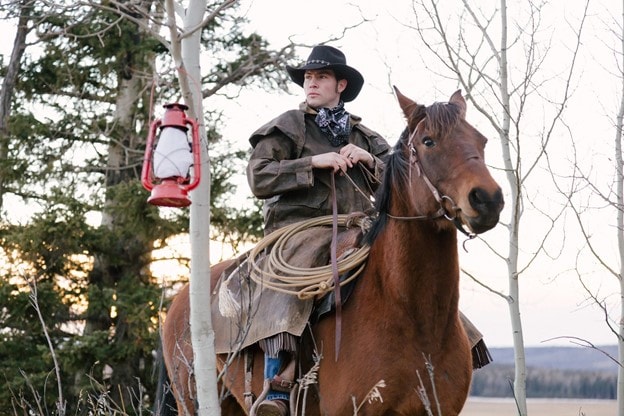
- Above Snakes- Being above ground; alive.
- Ace-high- High class; upscale
- Ace in the Hole- A hideout; safe house, or a concealed gun.
- Acknowledge the Corn- To confess the truth
- A Hog-Killin’ Time- Having a really fun time
- Adam’s Ale- Water
- Airin’ the Lungs- To use profanity; cursing
- A Lick and a Promise- To do something haphazardly or half-assed.
- All Down But Nine- Failure to understand something. It comes from a bowling reference which means someone has missed all nine bowling pins.
- At Sea- Being lost or confused.
- Bad Box- To be caught in a bad situation.
- Bad Egg- A mean or untrustworthy person.
- Bad Hoss- A wild or misbehaved horse.
- Bag of Nails- Chaos; confusion.
- Baker’s Dozen- Reference to the number thirteen.
- Bake- An overheated horse that has been ridden too hard, long, or fast.
- Balderdash- Senseless; foolish.
- Bangtail- Mustang; untamed horse.
- Barn Sour- Reference to a horse that loves being in the barn, or is a homebody.
- Bazoo- A mouth.
- Bee In Your Bonnet- A good idea.
- Best Bib and Tucker- Nice clothes.
- Boil Over- Reference to a bucking horse.
- Bone Orchard- A graveyard or cemetery.
- Broom-Tail- Reference to a badly behaved or unattractive horse.
- Busted Off- To get bucked off a horse.
- Calamity Jane- Reference to the Queen of Spades card.
- Calf Slobbers- Meringue pie topping.
- Crackerbox- Reference to a bronc saddle used in rodeo competitions.
- Crack-Up- To gloat or brag.
- Crash- Coarse linen fabric.
- Crawl His Hump- To pick a fight.
- Crimany- Making a surprised exclamation.
- Caterwauling- Bad singing or to complain.
- Chew Gravel- To be thrown off a horse.
- Chiseler- A swindler or conman.
- Choke Strap- A man’s necktie.
- Coffee Boiler- A lazy person.
- Crowbait- Reference to a low-quality horse.
- Desert Canary- A donkey.
- Deuce- Alternative expression for the devil.
- Dice House- Bunkhouse; sleeping quarters.
- Dickens- Another alternative expression for the devil.
- Eatin’ Irons- Flatware; eating utensils.
- Fair to Middlin’- To feel pretty good; to be in a good mood.
- Fair Shake- To make a fair trade.
- Fit to Be Tied- To be mad or angry.
- Flannel Mouth- A smooth talker.
- Full As A Tick- To be drunk or full from eating too much.
- Gig- To put spurs on a horse.
- Ginnin’ About- To move around fast.
- Gitty-Up- Command used to get a horse moving; to get up and go.
- Give Him Jessy- To give a whipping or spanking.
- Give The Mitten- When a woman rejects a man.
- Get A Wiggle On- To hurry.
- Hair In The Butter- To be stuck in a tricky situation.
- Hang Fire- To procrastinate or delay.
- Hazing A Tenderfoot- To give a person from the city a hard time.
- Hen Skin- A bedroll or sleeping bag.
- Hide- To get spanked or beaten.
- Hifer- Someone that loiters or loafs around.
- Higgle- To haggle or bargain.
- Hoosegow- jail; the penitentiary.
- I Can Set With That- To be in agreeance with someone.
- In Apple Pie Order- To be in top shape or high quality.
- Indian Broke- Reference to a horse that was trained to be mounted from the right side instead of the left side.
- Lambasting- To receive a thrashing or beating.
- Lammy- Reference to a blanket.
- Light A Shuck- To leave or escape somewhere fast.
- Made His Jack- He hit his target.
- Nailed To The Counter- When you catch someone in a lie.
- Namby-Pamby- Someone that lacks strength and energy.
- Odd Stick- A weird person.
- Off One’s Feed- Not being able to eat; not having an appetite.
- Of The First Water- Elegant; first-class.
- Owl Headed- Reference to a horse that keeps looking around everywhere.
- Plumb- Being complete, whole, or entirely something.
- Prairie Coal- Dehydrated cow feces that are used to make fires.
- Pull In Your Horns- A warning to stop and back off.
- Quirley- A hand-rolled cigarette.
- Rocky Mountain Canary- Donkey used by Rocky Mountain miners.
- Roostered- To be or to get drunk.
- Scratching Rake- A hair comb.
- Shooting Iron- a handgun.
- Simon Pure- certain; fact.
- Squinny- To make someone wink, laugh, or smile.
- Taradiddles- Lies, myths, or tall tales.
- Ten-Cent Man- A short-sighted or narrow-minded man.
- That Dog Won’t Hunt- That argument or idea won’t work or come to fruition.
- Thunderation- To curse and use profanity.
- Too Much Mustard- Someone who is boasting or bragging too much.
- Uncorkin’ A Bronc- To break in a wild horse.
- Varmint- A bad man or wild animal.
- Waddie- Hired farmhand that tends cattle.
- Wanna Snort?- An alternative way to ask someone for a drink.
- Wild West Weekly- Series of cheap paperbound novels about various western adventures.
- Will Die Standin’ Up- To be or act brave.
- Wobblin’ Jaw- When someone talks or is talking too much.
- Yarn The Hours Away- To tell long stories.
- Yellow Belly- A person who lacks courage; a coward.
Where Did Cowboys Come From?
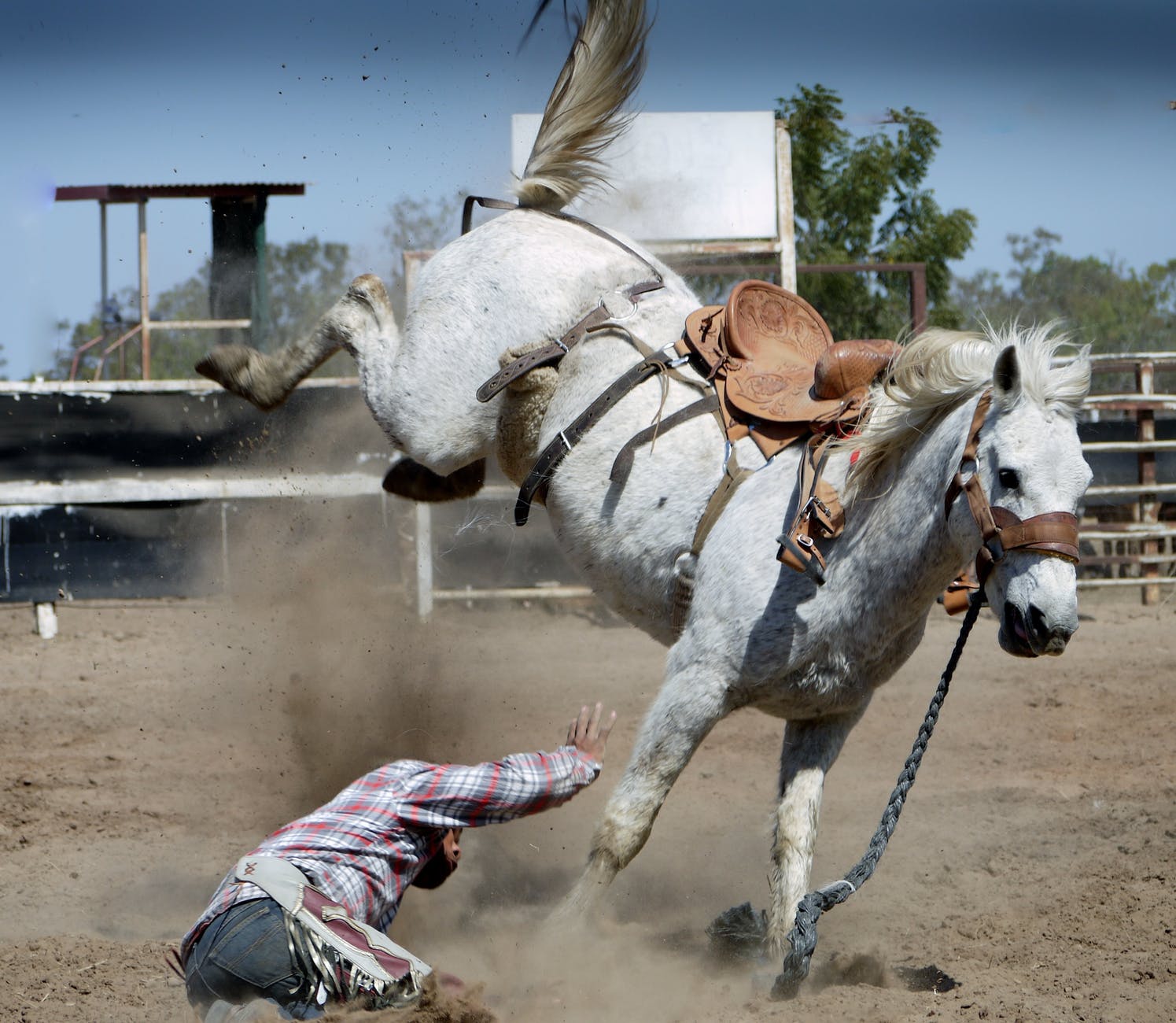
After Thomas Jefferson negotiated The Louisiana Purchase in 1803 — the westward expansion doubled the size of the United States and is when cowboys came on to the scene. Ranching was a huge industry and cowboys were needed to help keep these ranches running; they repaired buildings, fences, and other structures, herded cattle, tended horses, and worked the cattle drives.
As you can see, both the ranching industry and cowboys played a pivotal role in settling the west. Ranching was a practical way to maintain livestock and provide dairy products, meat, and raw materials for clothing that was indispensable to the west’s economy and development. Since cowboys and ranchers had the resources to trade goods with others, a good transportation system was required. Communities responded by allowing private companies to build their canals, roads, bridges, and to operate their ferryboat services. The presence of cowboys and all of their hard work and dedication led to transportation projects that completely reshaped the American landscape, so I think we owe them a bit of gratitude.
The Final Hurdle
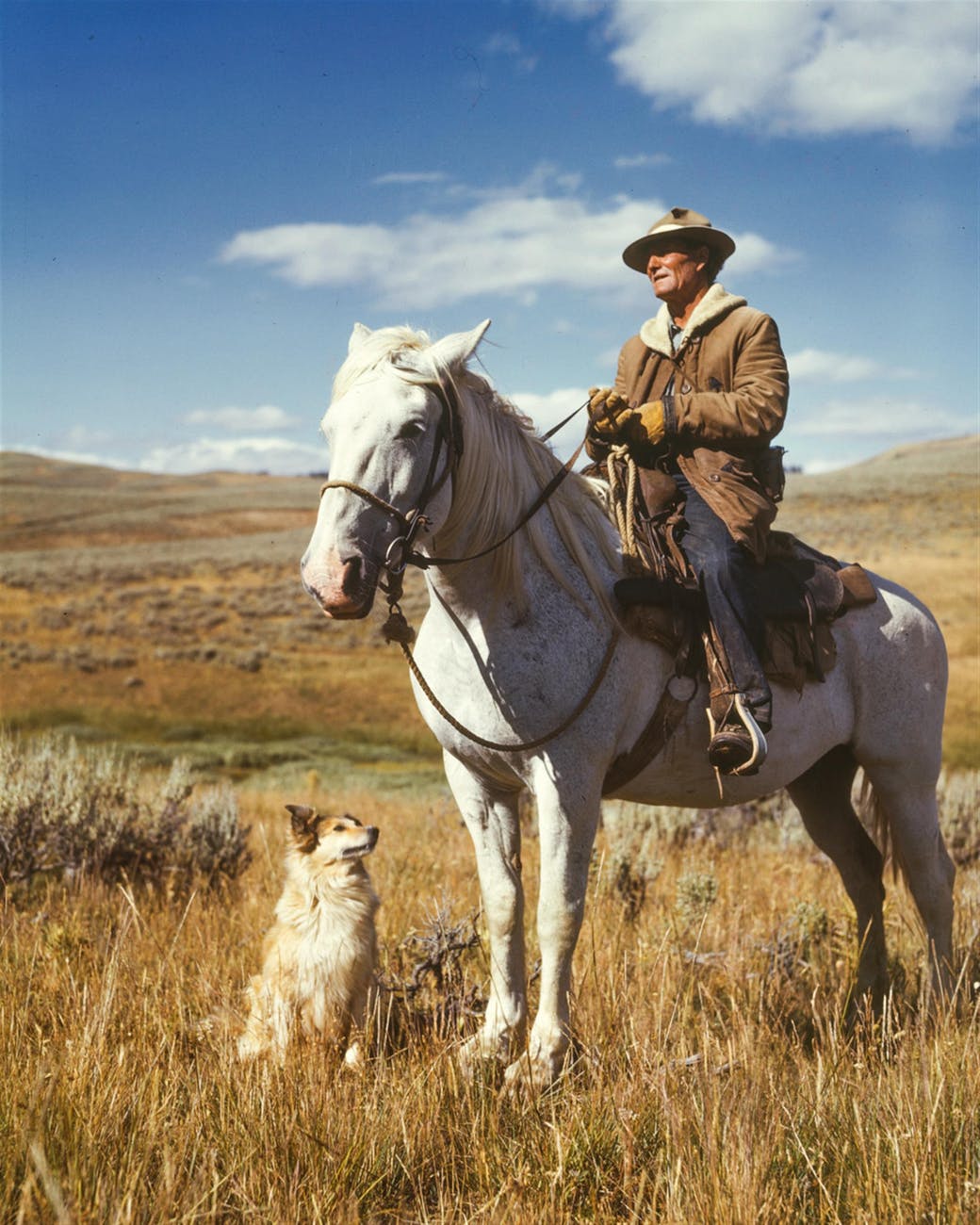
Whether it’s to learn more about how other past civilizations lived, to make sense of old movies, books, or songs, or to foster a better understanding of your fellow Americans’ way of life — learning about different cowboy expressions is both fun and educational. Having knowledge about old school wild west slang and the more modernized cowboy expressions gives the outside world information about what life was like for American frontiersmen over 150 years ago, and what life is like for cattle ranchers today.
Being able to understand others helps us foretell how people may feel in a given situation and how they might react. Not only that, but having an understanding of different cultures’ ways of life and manner of speaking brings us together by fostering an understanding of what’s important to each other.

